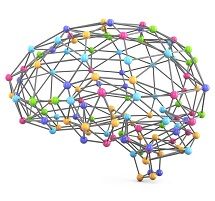OCD
Brain Game: What’s Playing "God Hand" Got to Do With OCD?
Managing OCD by overwriting mental habits and behaviors repeated since childhood
Posted June 19, 2014

I promise that I’m going to bring this around to something useful. But first I have to talk about God Hand.
God Hand is a beat-em-up game released by Capcom in 2006 for Sony’s Playstation 2. It can currently be purchased through Sony’s Playstation Network, at unknowing (and hence blameless) Goodwill stores, and probably in the backroom of dusty curiosity shops where they keep the cursed coins and dragon eggs. God Hand can be identified by its cover art, which depicts a man punching through another man’s face. This is about as good an introduction as any to the game’s sense of humor – deeply stupid, with the regular deployment of gratuitous slapstick violence, along with plenty of foul language and offensive stereotypes.
But here’s what I really want to talk about: God Hand, I can state with absolute certainty, is the most difficult videogame I have ever played.
Here’s how it works: You can punch or kick. You have a limited number of “super” moves, and a “rage” meter that fills up as you fight. The controls for God Hand are deliberately awkward, and your character controls like a tank: left or right to turn, up or down to step forward or back. You can’t jump. You can’t block, and you can’t defend.
God Hand is a tremendous value for money, because every individual stage takes approximately the same amount of time to beat as any other complete videogame. It probably also inspires the same amount of profanity from players.
Why? Why would I waste so much time playing and mastering this ugly, inane, repetitive, offensive, ill-conceived farce of a videogame?
Because God Hand requires patience. God Hand requires focus, and careful observation, and the ability to remain calm in the face of endless frustration. You try to punch a guy too early and he blocks you, you try too late and you’ve already been knocked out. But, gradually, over hours of play, you learn to recognize the split-second fingersnap window of opportunity you have to land a hit. It becomes intuitive. It’s like breathing, or blinking.
Now, why does any of this matter? Why would I talk about any of this in Psychology Today? Because it’s a perfect demonstration of neuroplasticity.
Neuroplasticity is the phenomenon that allows our minds to build new connections between actions and ideas. It enables us, gradually, to process even seemingly incomprehensible information. It allows us to gradually change ourselves, and what we can do.
If you don’t believe me, or (somehow) do not find my conquering a foolish videogame to be inspirational, please google the name “Cameron Mott,” and read her remarkable story. Because of recurring seizures, and the continuing deterioration of her cognitive abilities, doctors were forced to remove a complete hemisphere of Cameron’s brain. The procedure left half of her body paralyzed, and her doctors warned she might be permanently disabled. But over time, and with extensive therapy, in layperson’s terms - Cameron’s remaining hemisphere learned to perform the actions that had previously been assigned to the missing half. She regained full functionality, and her cognitive decline reversed. According to her grateful family, Cameron is now living a totally normal life. (God bless her, she now says she wants to be a ballerina when she grows up.)
I’ve had comparable experiences with my OCD, and with the Exposure-Response Therapy that’s helped me fight it. When my disorder was at its absolute nadir, I couldn’t even look at a triggering object or incident without descending into anxiety and paralyzing obsession. And this was infuriating, because I had grasped the principles of OCD and ERP almost instantly. I understood the disorder, I was doing the therapy, so why wasn’t I healthy again?
The answer was time. My brain was literally reprogramming itself, overwriting habits and behaviors that I’d repeated since my early childhood. And that takes time. Even though my conscious mind quickly grasped how to stop obsessing, the rest of my brain needed a long time to catch up.
But it did. Sometimes I’d go for long periods without seeming to any progress (which was frustrating), or even seem to relapse (which was terrifying). But I was always learning. The same way you can learn to beat a videogame, or overcome temporary paralysis, you can learn to disrupt self-destructive thinking and replace it with newer, healthier behaviors. This is basic biology. There’s nothing special about our brains, they’re just organs, just neurons and electrical impulses - and like our other organs, with patience and care, they have the potential to recover from seemingly irreparable damage.
Why I’m trying to say is, with patience and perseverance, you too can one day dish out apocalyptic beatdowns to digital punks. Or, you know, recover from a seemingly unbeatable mental disability.
I know this will sound corny, but I’m hoping my own struggles with mental illness will help vindicate it, so I’m going to say it anyway: do not give up. I know that it’s easy to lose hope when it seems like nothing’s improving, but it is a biological fact that the brain can and will heal itself over time.
Please. Have patience. Keep on fighting.
(This article refers to a Today Show segment on Cameron Mott, which you can watch here: https://www.youtube.com/watch?v=2MKNsI5CWoU)
Copyright, Fletcher Wortmann, 2014.
Author of Triggered: A Memoir of Obsessive-Compulsive Disorder (St. Martin’s Press), named one of Booklist’s “Top 10 Science & Health Books of 2012.”
Read my Psychology Today blog: Triggered
Image: ©iStockphoto.com/mbortolino




